Communication, Coordination, Cooperation: 4th BRIDGE+ Partner Meeting in Graz
17/10/2019
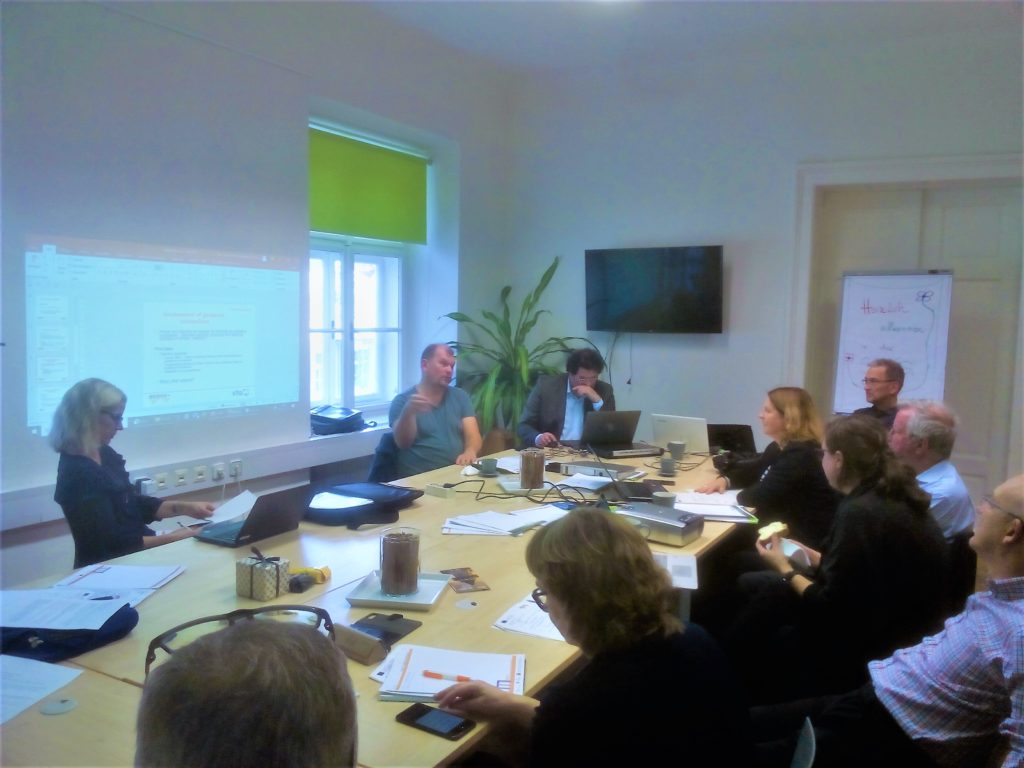
The region of Styria (Austria) hosted the fourth partner meeting of the BRIDGE+ project (funded by Erasmus+ KA3 and coordinated by vhs Baden-Württemberg) on 14-16 October 2019. Project partner representatives gathered in Graz to develop their work towards including different target groups in the development of skills-based guidance with the help of digital tools: career guidance counselors, educational institutions, companies and individuals. This will be done by means of a digital platform and key strategies to build regional skills development groups, based on the principles of CoCoCo, i.e. communication, cooperation and coordination.
Inspiration from regional best practices
Inputs from relevant stakeholders in Styria helped partner representatives continue their common work and get inspiration for their own regional strategies. On the first meeting day, our hosts, Dr. Peter Härtel and Dr. Michaela Marterer, from STVG (Styrian Association for Education and Economics), introduced the specific conditions that allow multi-stakeholder cooperation in the area, based on a clustered structure and a tradition of associations.
Presentations by regional education stakeholders followed. Ms. Kerstin Slamanig, from the Adult Education Network Styria (Bildungsnetzwerk), introduced the coordination efforts required by her organisation between the education systems, institutions for adult education, and federal, provincial and local authorities. This work is also supported by consultations as a member of the umbrella organisation Landernetzwerk. Afterwards, Ms. Gabriele Schaller and Ms. Lisa-Marie Pöllibauer, from the Rural Institute for Further Education Styria, showcased online education materials to be used on-site at farms and forests. This helps farming entrepreneurs to get trained with the help of smartphones at their workplace.
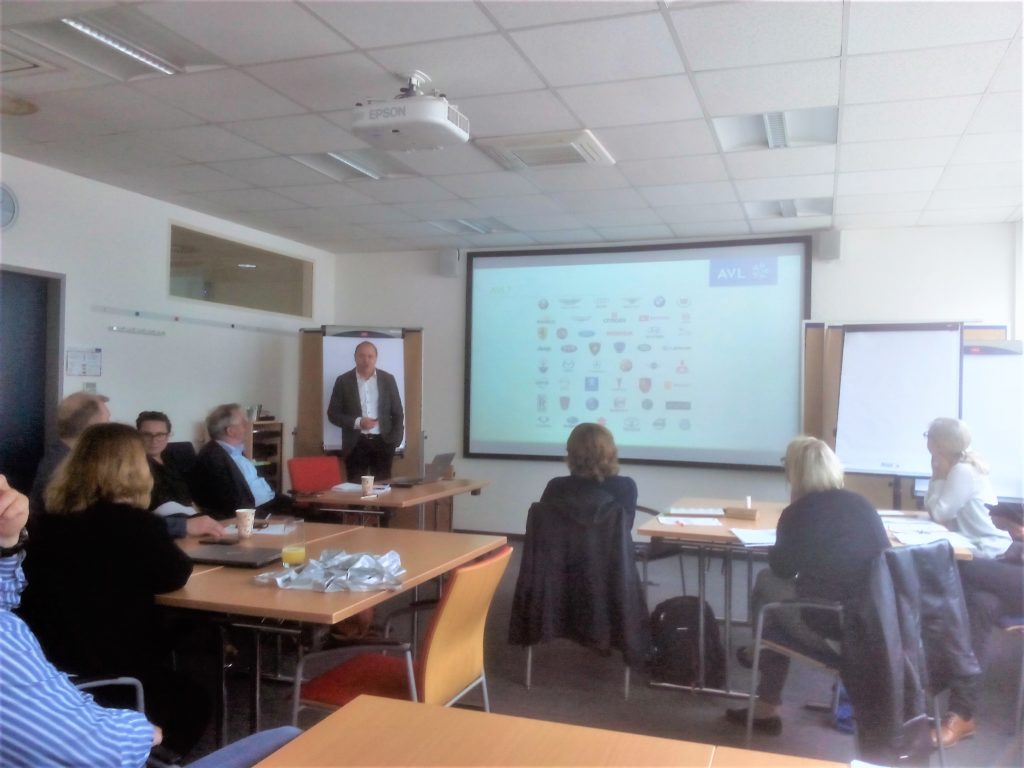
Visit to AVL Academy 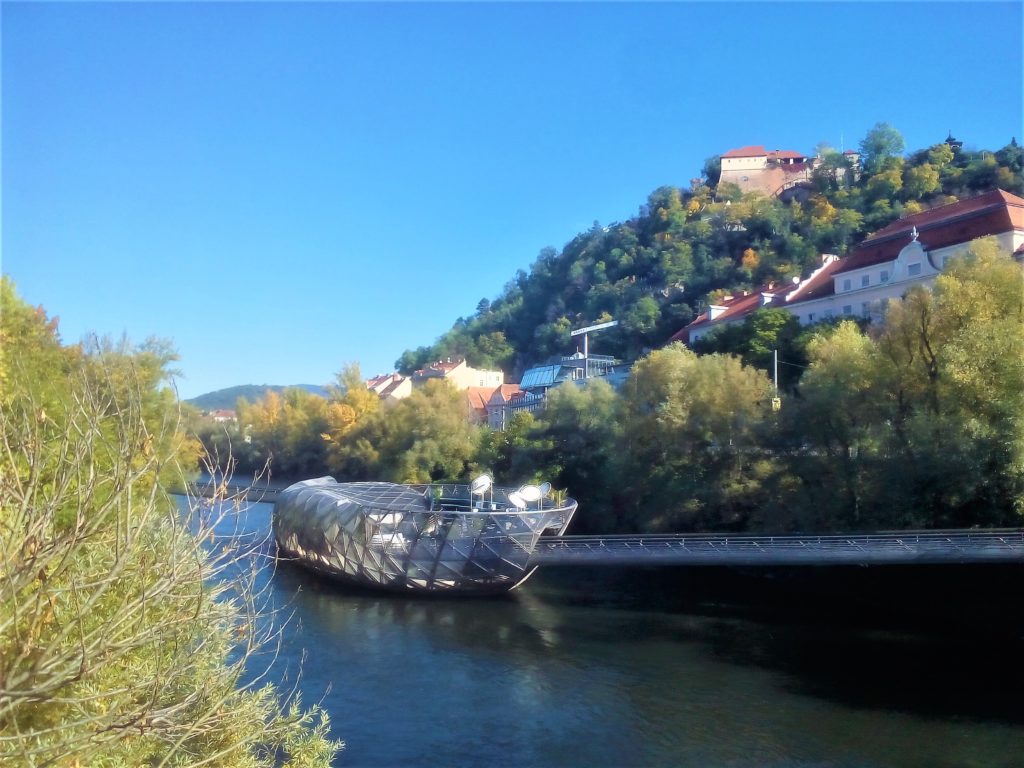
Graz 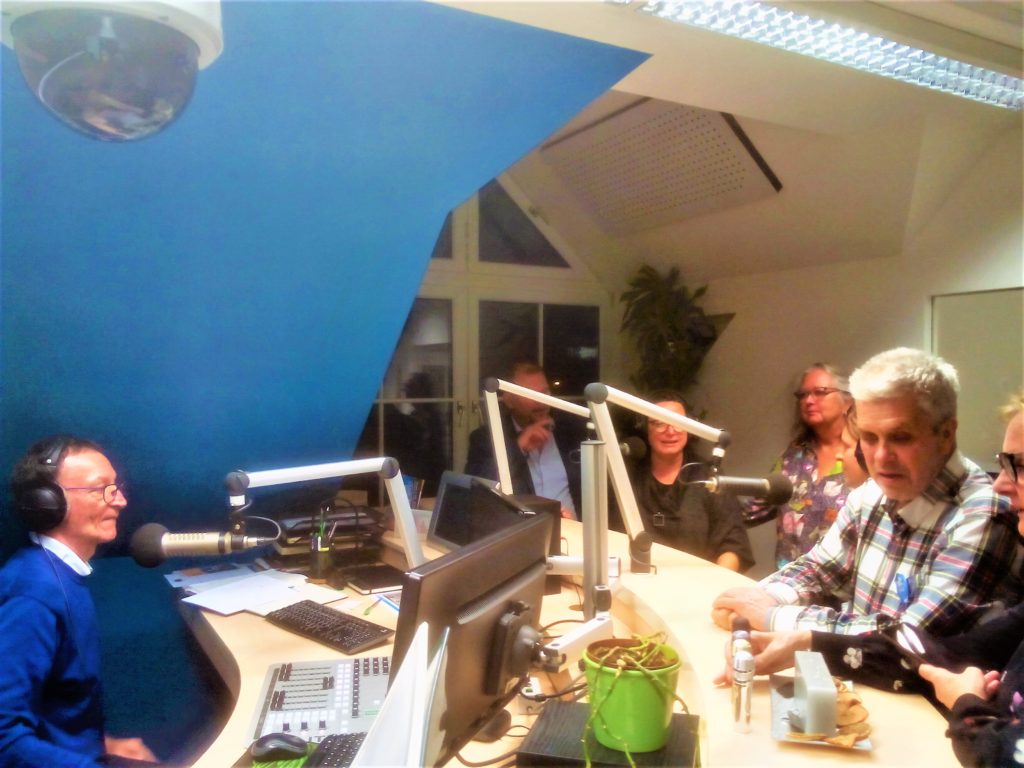
N-JOY radio 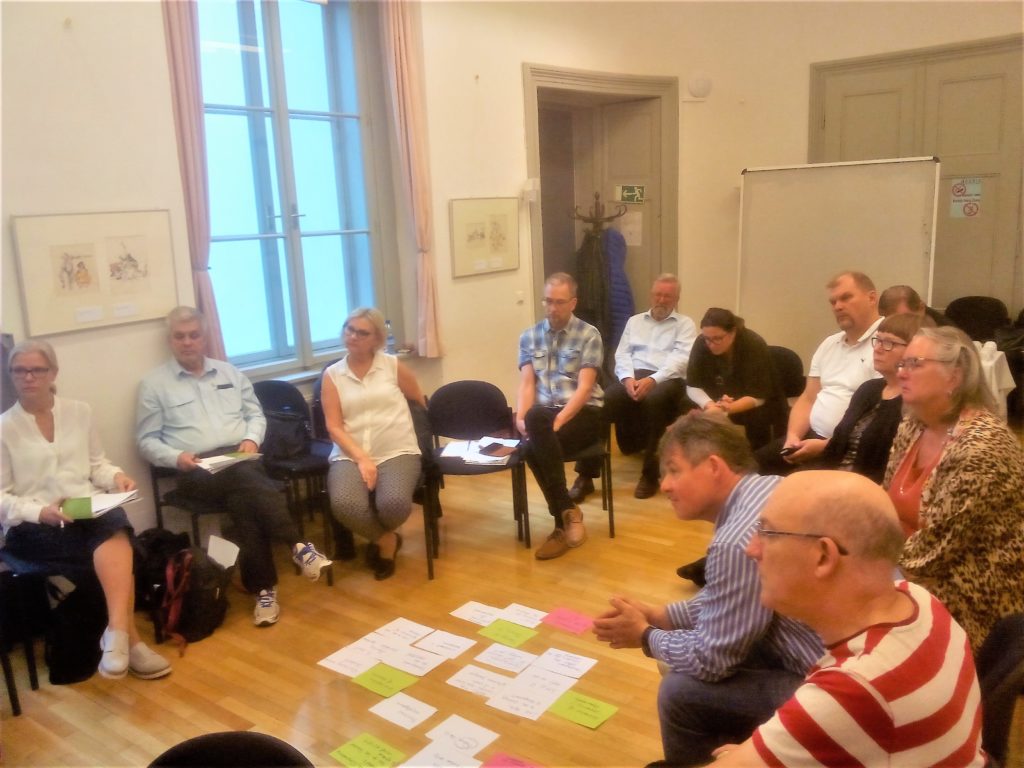
Partner meeting
On Tuesday afternoon, partner representatives visited AVL’s staff training facilities in Graz. AVL is the world’s largest independent company, and their activities focus on power train development for the automotive and transport industries. Mr. Bernard Posch, Head of Training and Development at AVL Academy, introduced the company’s global skills management strategy and highlighted the cooperation with more than 100 private training institutions from around the globe for the upskilling and reskilling of their workforce. A debate followed together with Dr. Martin Neubauer (WIFI Styria, the largest and most experienced VET training institute in Austria) and Dr. Hannes Galter (URANIA for Styria), underlining the need of focusing on learning outcomes rather than on required inputs and the blurring barrier between adult education and vocational training. The conversation also tackled digitalisation, which, as Dr. Neubauer put it, should mean individualised training opportunities rather than one-fits-all inputs.
Fruitful discussions and radio show
Project partners took advantage of the expertise and inspiration gained from Styrian expert presentations to continue their work towards building regional multi-stakeholder skills-based guidance models. Thus, discussions and brainstorming sessions about how communication, coordination and cooperation strategies should be shaped took place. Also, the project’s digital platform was presented by vhs Baden-Württemberg, and partner representatives were trained in its use to produce quality digital contents to train guidance counselors, to be developed in the following months.
Lastly, it is important to highlight that, on Monday afternoon, the BRIDGE+ project was showcased on the local radio station N-JOY, during a show in which all project partners took part. Mr. Victor Arias, from TKNIKA (Basque Centre for Research and Applied Innovation in VET), underlined the importance of going deeper into how skills can be managed for the BRIDGE+ consortium.
Useful links
- More information about BRIDGE+
- BRIDGE+ project website
- BRIDGE+ workshop at European Week of Regions and Cities 2019
- Austrian education system
- STVG website (in German)
- Adult Education Network Styria (in German)




